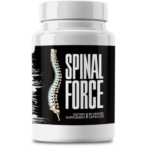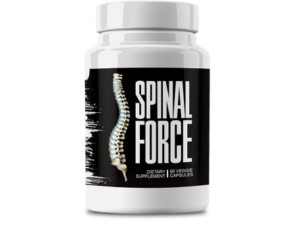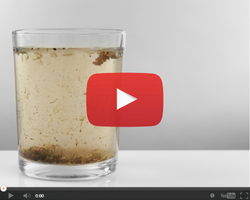This Village-Made Chinese Pain Reliever Eliminates Back And Joint Pain!
The Ultimate Guide to TMJ Remedies: Your Complete Resource

Understanding TMJ: Your Jaw’s Role in Daily Life
Ever found yourself wincing when chewing or hearing that unsettling click in your jaw? You're not alone. These symptoms are often linked to Temporomandibular Joint (TMJ) disorders, which affect millions worldwide. The TMJ is the hinge connecting your jawbone to your skull, enabling essential actions like eating and speaking. When this joint misaligns or malfunctions, it can lead to a host of uncomfortable symptoms known as TMJ disorders.
The TMJ: A Complex but Essential Joint
The TMJ is one of the most intricate joints in the body. It combines rotational and sliding motions, allowing for a wide range of movement. Surrounded by muscles controlling jaw movements, it’s crucial for everyday activities like eating and talking.
Common Signs of TMJ Disorders
TMJ disorders can manifest in various ways. Some common symptoms include:
- Jaw pain or tenderness
- A clicking, popping, or grating sound when moving the jaw
- Difficulty opening or closing the mouth fully
- Swelling on one or both sides of the face
- Headaches and neck pain
Why TMJ Remedies Are Crucial for Jaw Health
Ignoring these symptoms can lead to more severe issues, such as chronic pain or misaligned teeth. Early intervention with effective TMJ remedies is key to maintaining your overall oral and physical health.
Preventing TMJ Issues: What You Need to Know
What Puts You at Risk for TMJ Disorders?
Several factors can increase the likelihood of developing TMJ disorders. These include:
- Poor posture, especially when sitting for extended periods
- Ongoing stress or anxiety, which can lead to jaw clenching
- Grinding teeth (bruxism), often during sleep
- Injuries to the jaw or face
- Dental problems causing uneven bite alignment
Simple Daily Habits for TMJ Health
Preventing TMJ disorders often involves small, consistent changes. For example:
- Maintain good posture at work or while studying
- Avoid leaning on your elbows or resting your chin in your hand for long periods
- Practice stress management techniques like meditation or deep breathing to reduce jaw tension
- Use a mouthguard if you grind your teeth during sleep
Ergonomics: Your Ally Against TMJ Problems
Ergonomics plays a significant role in preventing TMJ issues, especially for those who work at desks or use computers extensively. Adjusting your workspace to support proper posture and alignment can go a long way in reducing strain on the jaw.
Alleviating TMJ Pain Through Lifestyle Changes
Diet Modifications for TMJ Relief
What you eat directly impacts your TMJ health. Hard or chewy foods can strain the jaw muscles and joints, so opting for softer foods when experiencing symptoms is often advisable.
- Choose soft foods like mashed potatoes, scrambled eggs, and smoothies
- Avoid chewing gum, which can overwork the TMJ
- Incorporate anti-inflammatory foods into your diet, such as fish rich in omega-3 fatty acids or leafy greens
Stress Management Techniques to Reduce TMJ Strain
Stress is a major contributor to TMJ disorders. When we're stressed, many of us unconsciously clench our jaw or grind our teeth, which can exacerbate existing issues.
- Practice relaxation techniques like yoga, tai chi, or deep breathing exercises
- Try progressive muscle relaxation to release tension in the jaw and neck muscles
- Incorporate mindfulness meditation into your daily routine to manage stress effectively
Avoiding Harmful Habits That Affect the TMJ
Certain habits can put unnecessary strain on your TMJ. Being aware of these and making an effort to break them can help prevent long-term damage.
- Don't chew on pens, pencils, or other non-food items
- Avoid biting your nails
- If you tend to clench your jaw when stressed, practice consciously relaxing your facial muscles throughout the day
Physical Therapy and Exercises for TMJ Remedies
Jaw Strengthening Exercises for TMJ Health
Strengthening the muscles around the jaw can improve joint stability and reduce pain. Always consult with a healthcare professional before starting any exercise regimen to ensure you're doing them safely.
- Chin tucks: Gently press your tongue to the roof of your mouth and slowly move your chin straight back, holding for 3-5 seconds
- Lateral movements: Open your mouth wide, then move your jaw from side to side in a controlled manner
Stretching Techniques to Improve TMJ Mobility
Gentle stretching can help improve the range of motion in your jaw and relieve tension. Try these exercises:
- Mouth opening stretch: Open your mouth as wide as comfortably possible, then close it slowly
- Side-to-side movements: Move your jaw from side to side without opening too wide
Incorporating Heat/Cold Therapy into Your Routine
Applying heat or cold can provide immediate relief from TMJ pain and inflammation. Here's how:
- Apply a warm compress to your jaw for 10-15 minutes several times a day to relax tight muscles
- If you have swelling, use an ice pack wrapped in a cloth to reduce inflammation
Home Remedies for TMJ Relief
Essential Oils for TMJ Pain Management
Certain essential oils are known for their anti-inflammatory and pain-relieving properties. Dilute these oils with a carrier oil before applying to the skin:
- Lavender oil: Known for its calming effects and ability to reduce inflammation
- Peppermint oil: Provides a cooling sensation that can relieve muscle tension
Herbal Supplements That Support Jaw Health
Some herbal supplements may help alleviate TMJ symptoms by reducing inflammation and supporting joint health. Always consult with your healthcare provider before starting any new supplement.
- Turmeric: Contains curcumin, a powerful anti-inflammatory agent
- Willow Bark: Naturally contains salicin, which has pain-relieving properties similar to aspirin
Creating a Relaxation Routine to Ease TMJ Tension
A consistent relaxation routine can help reduce stress and tension in the jaw. Consider incorporating these elements:
- Take regular breaks throughout the day to stretch your neck and shoulders
- Practice gentle facial exercises to release muscle tension
- Use guided meditation or soothing music to help you unwind
Professional Treatments for Severe TMJ Issues
Orthodontic Interventions for TMJ Disorders
In some cases, orthodontic treatment may be necessary to correct bite alignment issues contributing to TMJ disorders. Options include:
- Dental braces or aligners to straighten crooked teeth
- Occlusal adjustment to reshape the biting surfaces of your teeth
The Role of Massage Therapy in TMJ Remedies
Massage therapy can be highly effective in relieving muscle tension and improving joint mobility. A licensed massage therapist can target the muscles around the jaw, neck, and shoulders to provide significant relief.
Exploring Alternative Therapies Like Acupuncture
Acupuncture is a traditional Chinese medicine technique that involves inserting thin needles into specific points on the body. For TMJ disorders, acupuncture can help reduce pain and inflammation by stimulating the release of natural painkillers.
When to Seek Expert Help for TMJ Problems
Recognizing Red Flags That Indicate Severe TMJ Issues
While many TMJ symptoms can be managed at home, some signs indicate that professional intervention is necessary. These include:
- Persistent jaw pain that doesn't improve with self-care measures
- Severe difficulty opening or closing the mouth
- Frequent locking of the jaw in an open or closed position
- Radiating pain to the shoulders, neck, or upper back
Consulting with Specialists: Dentists, Physiotherapists, and Beyond
When home remedies aren't enough, it's time to seek help from a medical professional. Consider consulting:
- A dentist or orthodontist specializing in TMJ disorders
- A physiotherapist experienced in treating jaw and neck issues
- An ENT specialist if your symptoms are linked to ear problems
Understanding Surgical Options for Persistent TMJ Disorders
Surgery is typically a last resort for TMJ disorders, reserved for cases where other treatments have failed. Possible surgical options include:
- Arthroscopic surgery to repair damaged joint tissue
- Total joint replacement in severe cases
Conclusion
TMJ disorders can significantly impact your quality of life, but with the right approach, you can manage symptoms and restore jaw health. Whether through lifestyle adjustments, physical therapy, or professional treatments, there are numerous options available to help alleviate discomfort and prevent further issues.
Understanding TMJ: What It Is and Why It Matters
Ever had a popping jaw or trouble chewing? You're not alone. These symptoms often point to Temporomandibular Joint (TMJ) disorders, affecting millions globally. The TMJ is the hinge connecting your jaw to your skull, enabling essential movements like talking and eating. When it's out of alignment, discomfort ensues—think pain, popping sounds, or even locked jaws.
Breaking Down the Temporomandibular Joint (TMJ)
The TMJ is a marvel of complexity. It combines rotation and sliding motions for versatile movement, surrounded by muscles controlling every jaw action. Without it functioning smoothly, even simple tasks become challenging.
Common Signs of TMJ Disorders
TMJ issues vary widely but often include:
- Jaw pain or tenderness
- Popping, clicking, or grinding sounds when moving the jaw
- Difficulty fully opening or closing the mouth
- Facial swelling
- Headaches and neck pain
Why TMJ Remedies Are Crucial for Oral Health
Ignoring these symptoms can lead to chronic pain or misaligned teeth. Early intervention with effective remedies is key to maintaining overall oral health.
Preventing TMJ Problems: What You Can Do
Factors That Increase Risk of TMJ Disorders
Several factors can heighten your risk:
- Poor posture, especially when sitting for long periods
- Stress or anxiety leading to jaw clenching
- Tooth grinding (bruxism)
- Jaw injuries
- Dental issues causing uneven bites
Incorporating Prevention into Daily Life
Preventing TMJ disorders often starts with small, consistent changes:
- Maintain good posture at work or while studying
- Avoid resting your chin in your hand or leaning on elbows for extended periods
- Practice stress management techniques like meditation or deep breathing to reduce jaw tension
- Use a mouthguard if you grind your teeth during sleep
Ergonomics: Your Ally Against TMJ Strain
Ergonomics plays a vital role, especially for desk workers. Adjusting your workspace to support proper posture can significantly reduce jaw strain.
Lifestyle Tweaks for TMJ Relief
How Your Diet Affects TMJ Health
What you eat matters. Hard or chewy foods can strain your TMJ, so opting for softer options when experiencing symptoms is wise.
- Choose soft foods like mashed potatoes, scrambled eggs, and smoothies
- Avoid chewing gum
- Incorporate anti-inflammatory foods such as fish rich in omega-3s or leafy greens








